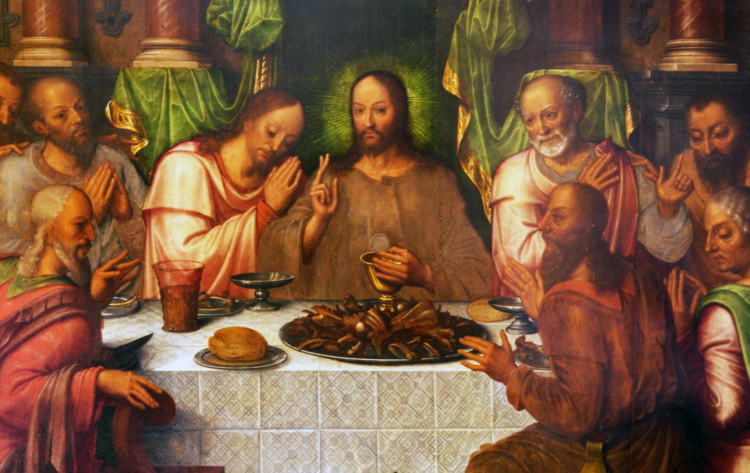As the world’s bishops gather in the Vatican to confront the sex abuse scandals that have arisen around the world, I share this piece that I published in America a couple of days ago. It proposes a Eucharistic response to the scandals. What I mean is conveyed best through the first few paragraphs — along with the great picture with which America accompanied the piece.
“The gates of hell shall not prevail against the church.” With these words of the Lord, stalwart Catholics have sought to dissuade brothers and sisters alienated by the sex abuse scandals from exiting the fold.
While it is good to be reminded that insolvency is not the church’s destiny, such words alone will not assuage today’s disillusioned laity. This past summer’s new revelations of priestly abuses and episcopal failures in Pennsylvania, along with prospective revelations from many other states, combined with a new face of the scandals—the silence of some prelates toward the abuses of other prelates like those of former archbishop Theodore McCarrick—leave the laity seeking not salve, comfort and piety but rather reform, repentance and truth: in a word, justice. Absent justice, many will leave the church.
Can we expect the Body of Christ to deliver justice? Many Catholics, perceiving corporate evasion and bureaucratic torpor on the part of the church’s bishops, will say no and instead favor turning matters over to the district attorney, the journalist and the therapist. While these responses have elicited benefits over the past couple of decades, they follow secular scripts and again raise the question: Does the Body of Christ—qua the Body of Christ—offer a response to the sex abuse scandals? Or does it offer only creeds, catechesis and suburban Sunday school sapience that must be laid aside until this enormity is dealt with?
Catholics encounter the Body of Christ directly in the bread and wine of the Eucharist. What we have here is not an inert cosmic substance that perdures despite the sins of the church’s members but rather the action of a God who ventured into the mud to do battle with these very sins. Christ, too, faced a scandalous abuse crisis, surrounded by violence between a brutal empire and restive separatists, persecuted at birth by the local king and ultimately executed. Through the Eucharist, Jesus makes his victory over these—and all—sins available to us, here and now, in our crisis.
The Eucharist holds out an integrated response to the wounds that priestly sex abuse has wrought . . .

